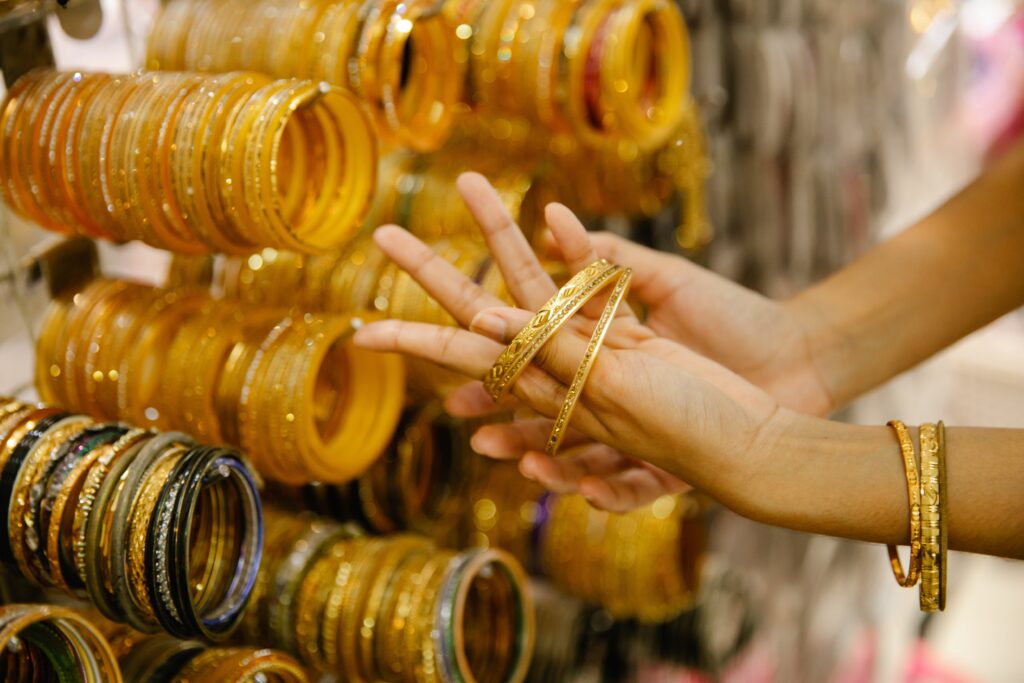Jewelry has permanently stood a character of beauty, style, and elegance. Yet, in current years, the jewelry industry has grown awareness and demand for more ethical and sustainable options. From sustainable materials to fair trade practices, the rise of ethical jewelry is revolutionizing the way we wear and appreciate our adornments.
Let’s delve into this captivating journey and explore the critical aspects of ethical jewelry that make it a sustainable and responsible choice.
1. Sustainable Materials
The first step towards ethical jewelry is choosing sustainable materials. Many jewelry brands now embrace eco-friendly alternatives such as recycled gold, ethically sourced diamonds, and lab-grown gemstones. Recycled gold reduces the need for mining, which can contain a devastating influence on the environment. Lab-grown gems offer a conflict-free and environmentally friendly alternative to mined stones without compromising their beauty or quality.
2. Fair Trade Practices
Another critical aspect of ethical jewelry is fair trade practices. Artisans and miners often work in harsh conditions and are underpaid in many parts of the world. Golden trade jewelry ensures these individuals receive fair wages, safe working conditions, and growth opportunities. By supporting fair trade, you contribute to the well-being of these workers and help create sustainable livelihoods for their communities.
3. Empowering Local Artisans
Ethical jewelry celebrates the craftsmanship and artistry of talented artisans worldwide. These artisans use traditional techniques handed down through generations, creating unique and culturally rich pieces. These artisans directly support ethical jewelry, preserving their heritage and ensuring they pass on their skills to future generations.
4. Transparent Supply Chains
One of the hallmarks of ethical jewelry is a transparent supply chain. Unlike conventional jewelry, which often lacks visibility into its origins, ethical brands provide detailed information about the sourcing of their materials. This transparency ensures your jewelry is free from conflict, exploitation, or environmental harm. By choosing ethical brands, you consciously support responsible practices and make a positive impact.
5. Social and Environmental Impact
Ethical jewelry goes beyond fashion; it has a broader social and environmental impact. By opting for sustainable and fair trade jewelry, you contribute to reducing carbon footprints and helping combat the adverse effects of the jewelry industry. Additionally, many ethical brands allocate a portion of their profits towards social and environmental initiatives, making a tangible difference in their communities.
6. Customization and Unique Designs
Ethical jewelry doesn’t compromise style or creativity. Many ethical brands offer customizable options, allowing you to create a piece that reflects your individuality and values. Whether it’s an engagement ring or a statement necklace, ethical jewelers work closely with customers to bring their visions to life, resulting in one-of-a-kind pieces that are as special as the wearer.
7. Conscious Consumerism
The rise of ethical jewelry is part of a broader movement toward conscious consumerism. People are evolving to be more aware of their choice’s impact on the world and actively seeking alternatives that align with their values. Ethical jewelry is a powerful way to express personal style while making a positive difference, encouraging others to follow suit and create a more sustainable future.
Create Change with Every Piece!
Ethical jewelry represents a new era of responsible and conscious adornment. Ethical jewelry brands are transforming the industry by embracing sustainable materials, fair trade practices, and supporting local artisans. These brands empower consumers through transparent supply chains and a dedication to social and environmental impact to make a difference through their purchasing choices.

